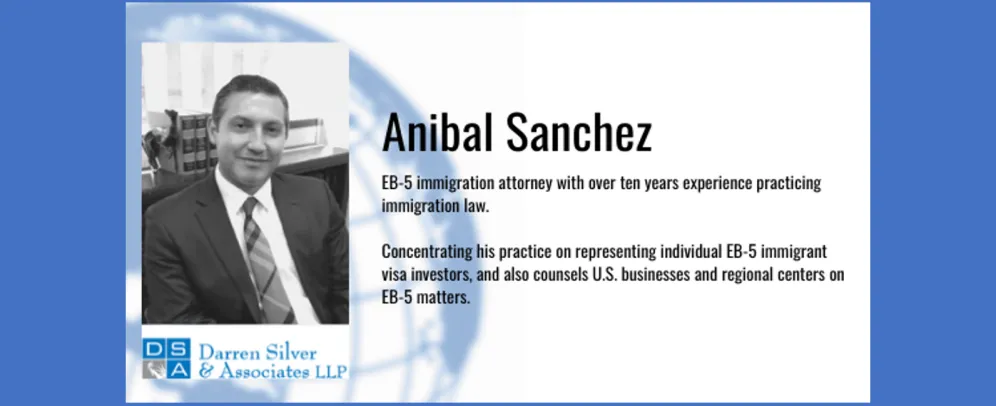Anibal Sanchez, of Daren Silver & Associates, LLP, has written the following article on the details and implementation of the Public Charge Inadmissibility Rule, which will go into effect on February 24, 2020.
U.S. Citizenship and Immigration Services New Public Charge Rule
U.S. Citizenship and Immigration Services (“USCIS”) recently announced a new public charge rule will become effective nationwide, other than in the state of Illinois, on February 24, 2020. The rule effectively will change the manner in which USCIS will evaluate whether an individual is subject to the public charge ground of inadmissibility to the United States. The final rule was originally scheduled to become effective in October 2019. However, the rule had been blocked from implementation by a nationwide injunction, which was stayed by the U.S. Supreme Court on January 27, 2020, thus allowing the rule to take effect. Under the laws of the United States, a public charge designation is grounds for inadmissibility to the United States which may result in the denial of an adjustment of status application, a change of status or extension of status application, or admission to the U.S. through a non-immigrant visa.
Who Is Impacted By This Rule?
The rule applies to most individuals seeking adjustment of status to a U.S. lawful permanent resident (such as applicants filing form I-485s based on approved I-526s), and individuals in the United States seeking extensions or changes of status with a few exceptions such as U and T visa applicants, refugees, asylum applicants, and TPS applicants. This rule also does not apply to cases processing through U.S. Consular posts as those applicants are subject to rules enacted by the Department of State. However, the Department of State has also established a totality of the circumstances analysis consistent with the factors in the applications filed on or after February 24, 2020, will be subject to the new rules.
How is the New Rule Different from the Existing Public Charge Analysis?
The rule expands USCIS' interpretation of a public charge to those who are not deemed “self-sufficient”. USCIS will use a “totality of the circumstances” analysis when determining if an individual is a public charge; they will consider factors such as age, assets, education, health, and family status when making a public charge determination.
In addition, an individual who has used non-cash benefits such as Supplementary Security Income (SSI), Supplementary Nutrition Assistance Program (SNAP) (commonly referred to as “food stamps”), Medicaid, and/or housing vouchers and subsidies may be considered a public charge under the expanded definition. Previously, only cash benefits were considered public benefits as negative factors in a public charge evaluation.
Any individuals who have used any these benefits for twelve (12) months in the aggregate of the thirty-six (36) month period prior to admission or adjustment of status will likely be determined to be a public charge. An individual may be still considered a public charge even if the aggregate use of these benefits is below the twelve (12) month threshold.
Considerations Moving Forward
Adjustment of status applicants or applicants for changes or extensions of status should discuss any issues that could impact their financial circumstances in the future with their attorneys. Factors that should be considered include a history of any serious medical issues; periods of previous unemployment; a lack of a university or higher degree which could impact future job prospects; whether the applicant has a reasonable amount of assets in the U.S. or their home countries to substantiate their ability to support themselves when in the U.S. Furthermore, applicants should be well versed in the need to obtain private medical insurance in the United States.
USCIS has introduced new forms: Form I-944, Declaration of Self Sufficiency; Form I-945, Public Charge Bond; and Form I-356, Request for Cancellation of Public Charge Bond. USCIS has also revised many of its forms, including I-129, I-485, and I-539. After February 24, USCIS will no longer be accepting the old versions of these forms, and individuals should discuss the revised rules with immigration counsel to clarify how their prospective applications may be impacted.
